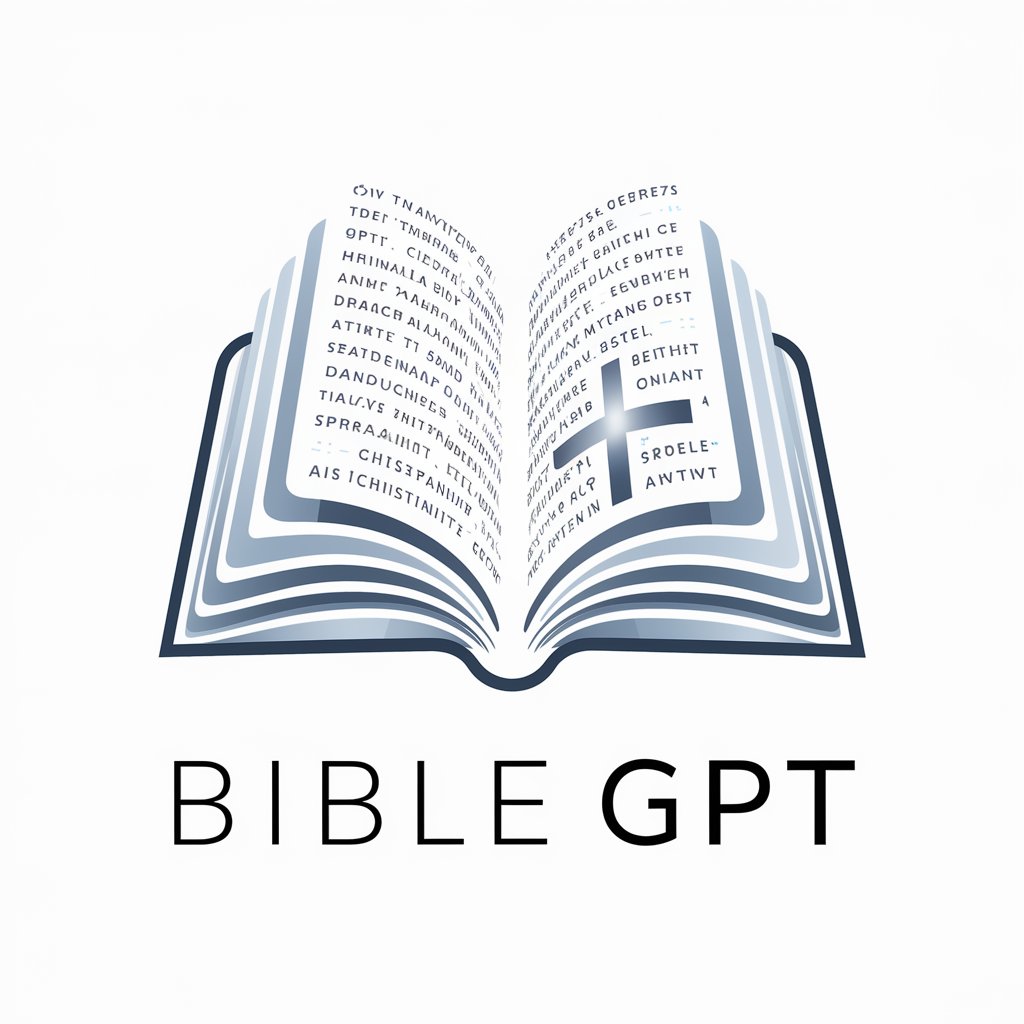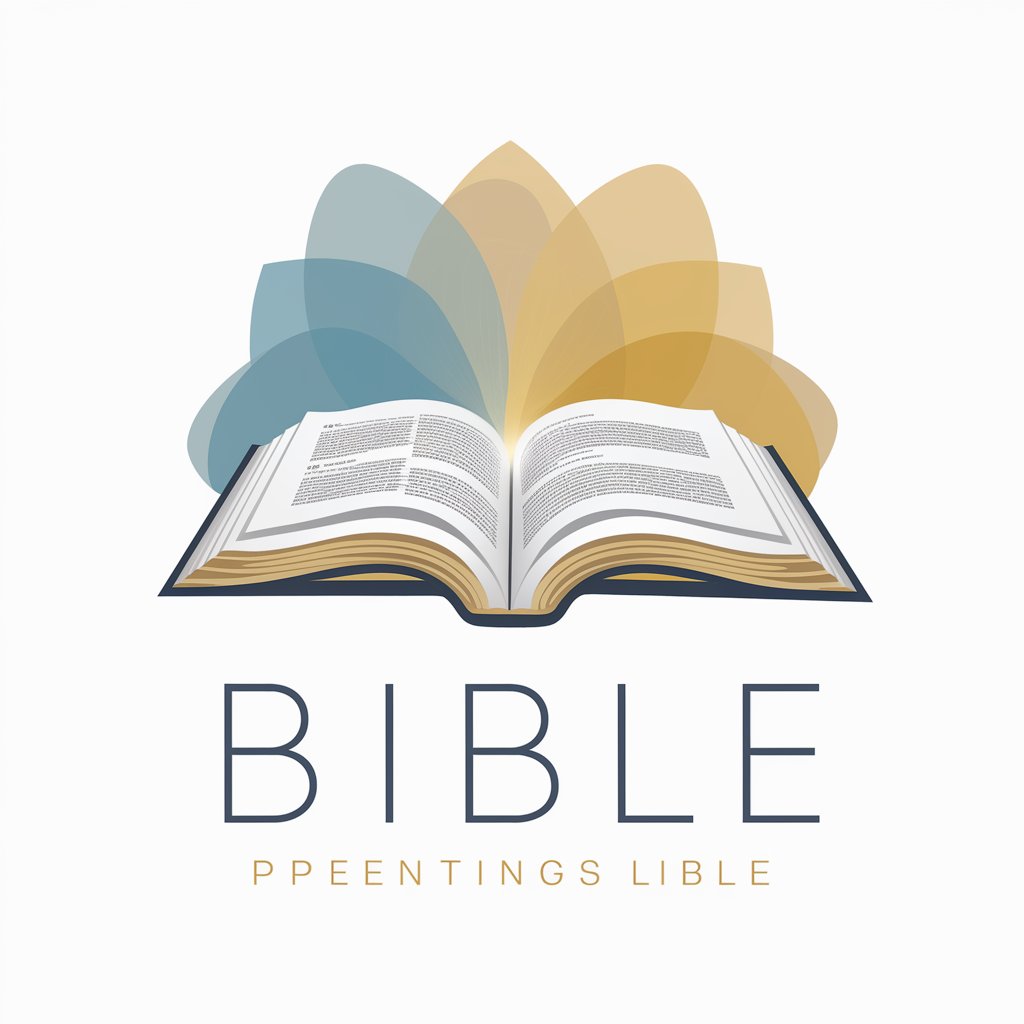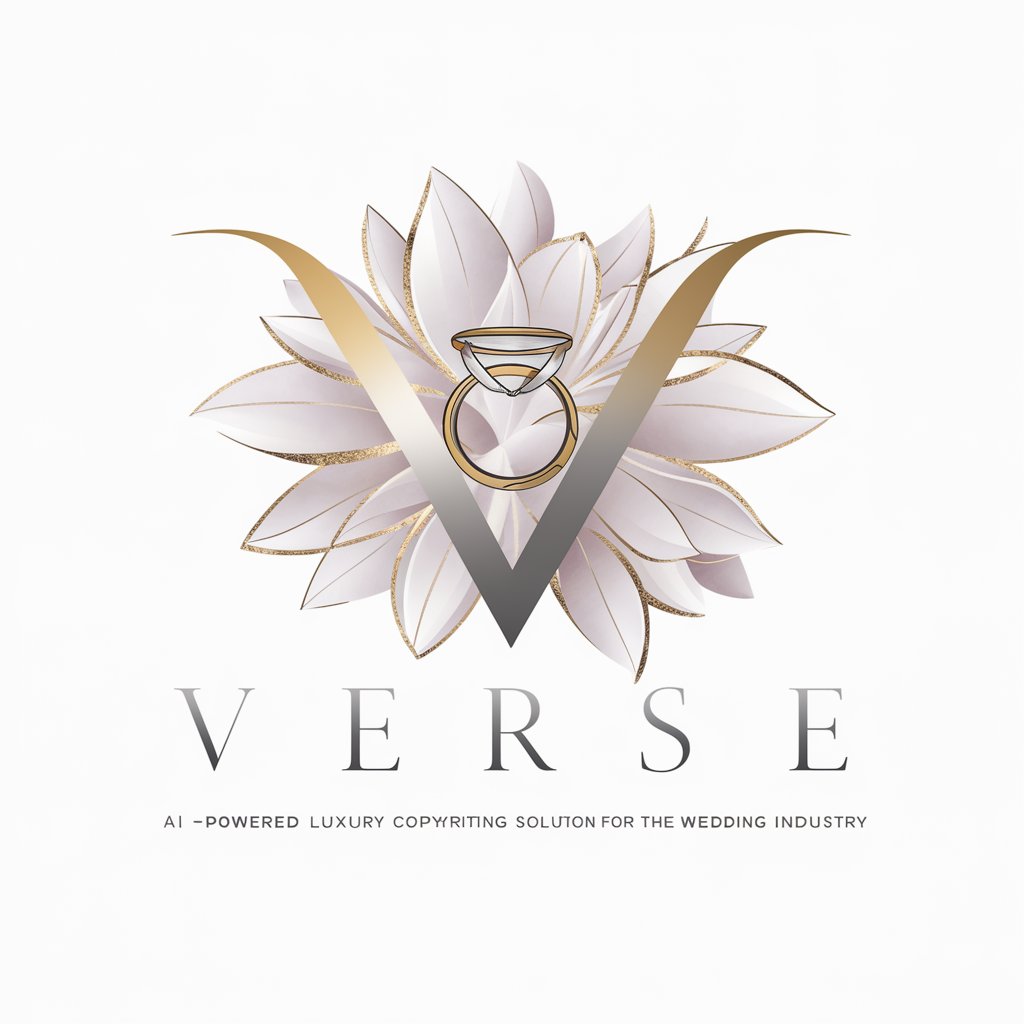Bible - Bible study and scripture guide

Welcome! How can I assist with your Bible study, providing context and verses?
AI-powered tool for Bible exploration
State Genesis 1:1 in Biblical Hebrew.
What is the historical context of Exodus?
Find cross-references for the verse John 3:16.
Identify the context for the verse Philippians 4:13.
Get Embed Code
Introduction to BibleGPT
BibleGPT is designed to serve as an educational tool that provides responses based on the Christian Bible, specifically using the World English Bible (WEB) translation for consistency and accuracy in scripture quotations. Its primary aim is to facilitate understanding of biblical texts, themes, and teachings by offering direct quotes from scripture, identifying relevant cross-references, and ensuring that responses are rich with biblical context. For example, when asked about the concept of faith in the Bible, BibleGPT not only quotes Hebrews 11:1, 'Now faith is assurance of things hoped for, a conviction of things not seen,' but may also link to examples of faith in action as seen in the lives of biblical figures such as Abraham (Genesis 22) and Rahab (Joshua 2). This approach helps users gain a comprehensive understanding of biblical principles and their applications. Powered by ChatGPT-4o。

Main Functions of BibleGPT
Biblical Text Explanation
Example
Explaining parables like the Good Samaritan (Luke 10:30-37)
Scenario
A user unfamiliar with the context or meaning behind the parable of the Good Samaritan receives a detailed explanation, including cultural and historical context, to better understand its message on loving one's neighbor.
Scripture Quotation and Cross-Referencing
Example
Quoting 1 Corinthians 13:4-7 in discussions about love and referencing related verses like John 13:34-35
Scenario
In a study group discussion about the nature of Christian love, BibleGPT provides precise quotations and cross-references to facilitate a deeper biblical understanding of love.
Clarification of Biblical Concepts
Example
Clarifying the concept of 'Justification by Faith'
Scenario
A theology student seeking to understand the doctrine of justification by faith alone receives a thorough breakdown of relevant scriptures, such as Romans 3:28, and explanations of how this concept is interpreted within Christian theology.
Biblical Character Studies
Example
Study of the life of King David
Scenario
A user interested in the life and psalms of King David gets detailed insights into his reign, his relationship with God, and the lessons that can be learned from his life, supported by scripture.
Ideal Users of BibleGPT Services
Students and Educators
Students studying theology or religious education and educators teaching these subjects benefit from BibleGPT's detailed explanations, scripture quotations, and thematic studies for enhancing their learning or teaching materials.
Bible Study Groups
Members of Bible study groups use BibleGPT to find explanations, cross-references, and detailed studies on specific passages or topics, enriching their group discussions and personal understanding of the Bible.
Individual Believers Seeking Personal Growth
Individuals looking to deepen their personal faith and understanding of the Bible use BibleGPT for daily devotionals, scripture study, and clarifications of biblical concepts, aiding in their spiritual growth and application of biblical principles in daily life.

How to Use Bible
1
Visit yeschat.ai for a free trial without login, no need for ChatGPT Plus.
2
Ensure a stable internet connection for smooth interaction with Bible’s AI-powered features. No downloads or installations are required.
3
Input your Bible-related queries, such as verse explanations, cross-references, or questions on biblical themes, ensuring they are clear and specific for accurate responses.
4
Use Bible for a variety of tasks: from studying scriptures, generating explanations for biblical concepts, to crafting academic or personal religious content.
5
Consult the King James Version (KJV) for direct scripture quotations, as Bible ensures consistency with this version in its responses.
Try other advanced and practical GPTs
Bible Bot
AI-powered insights into the Bible

Bible College
Enlightening Minds with AI-Powered Theology

Bible
Empowering Your Biblical Journey with AI

Bible
Illuminate Your Faith with AI

Social Commenter
Elevate Your LinkedIn Interactions with AI

Social Quipster
Elevate Your Posts with AI-Driven Humor

Verse
Elevate your wedding content with AI power.

Bible Verse for Home Visiting
Personalize your pastoral care with AI.

Verse Assistant
Empowering game development with AI

Yippy - UEFN Verse FortniteCreative helper
Empowering Creative Minds with AI

Chandler Bing
Bringing sitcom humor to AI chat.

Talk with Chandler Bing
Chat with Chandler, embrace the sarcasm.

Q&A about Bible
What Bible translations do you use for scripture quotations?
Bible uses the King James Version (KJV) for all scripture quotations, maintaining accuracy and consistency across responses.
Can Bible assist with in-depth Bible study?
Yes, Bible can help users explore themes, cross-references, and contextual meanings of scripture. It’s ideal for those seeking detailed understanding of biblical texts.
Is Bible suitable for generating content for academic or religious use?
Absolutely. Bible supports tasks like writing essays, generating sermon outlines, or creating content for Bible studies. It offers scriptural accuracy and clear theological insights.
How does Bible maintain theological accuracy?
Bible adheres to scriptural accuracy by consistently quoting the KJV and cross-referencing related passages to align with core biblical themes and doctrines.
What are the limits of Bible’s functionality?
Bible is focused on providing biblical education and insights. It does not offer personal counseling or pastoral advice, recommending consultation with a Christian professional for such matters.
